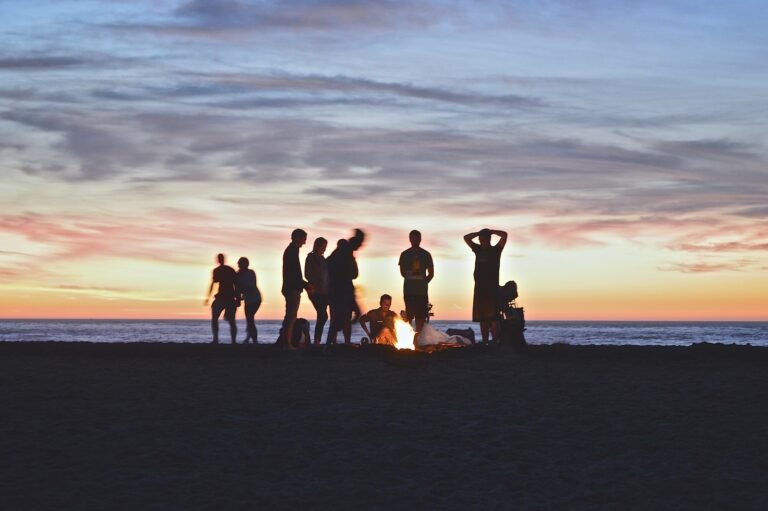Lessons from Food Allergies (No, You’re Not Imagining Things)
So often the things that annoy you most at the time come back to you later, revealed as wisdom. A mentor of mine used to teach a diversity and inclusion class in our corporate offices. One of the tag lines from the class was “you don’t know what you don’t know, until you know”. (If Web 2.0 had memes, this would have been pure gold.)
The wisdom of my mentor’s statement dawned on me over 20 years later, when a family medical journey plunged us into the world of mental health.
Symptoms and a showdown
In 7th grade, my son started having symptoms that didn’t make sense. He was losing a lot of weight; had stomach and chest pains; wasn’t eating like a normal, growing kid; and became withdrawn. The doctor kept dismissing our concerns during appointments. In effect, he’d pat us on the head by pronouncing “growing pains” – or suggesting that I was “overly concerned about nothing” – then send us on our way. The dismissive quality of the doctor’s words, compounded by the erratic nature of food allergies (it can take six weeks from ingestion of allergen to visible symptoms), added to the pile of stress and confusion that comes with fear of the unknown. At this stage, Google was not a friend.
The final showdown came when my son lost 30 lbs in one month and missed almost a month of school. After a frank conversation with his doctor, we finally got a referral to an enterologist: a specialist in intestinal disorders.
Following that first appointment, the specialist sent my son for endoscopies, then referred him to the Children’s Hospital for more endoscopies, referrals, and questions. Finally, we received a diagnosis: Eosinophilic Esophagitis (EoE). Loosely, this means that my son has extreme food allergies. The inside of his esophagus looked like someone had been using sandpaper on it: instead of being smooth and light pink, his esophagus was angry red, blistered, and scarred. It took two more years of hospitals, lots of missed school, and special diets to find and eliminate the foods sending his system into shock.
Being open about counseling
The amount of stress and bullying my son experienced after re-entering day-to-day school led to serious issues of anxiety and depression. Finally, during one of our many hospital visits and tests, a neurologist recommended counseling.
The counselor worked with my son to develop tools and skills to deal with anxiety; manage his re-entry to school; and work and communicate with adult bullies. This was an 18-month process my son was very open about. He says, “You don’t hide going to the dentist; why would you hide counseling?” Just like a toothbrush is a tool, so are the practices and exercises his counselor gave him. And like a toothbrush, these things only help if you use them regularly.
Get notified when we publish new stories about how people turned a situation around.
There are always more lessons
From middle school to high school, we just survived. High school turned from surviving into thriving. And thriving in the middle of a global pandemic and a local derecho wind storm speaks to the strength of our son. We watched as he leaned into what he learned from the counselor and went out into our small town — no longer “the sick kid”, but simply a kid.
Does that mean a parent can stop worrying? Can I exhale now? Nope. College meant dorm life; cafeterias that are not allergy friendly; and new social groups — all experiences that are stress inducing under the best of circumstances. So I held my breath with every text, and through every concern and weight change.
Each time a new situation arose there’d be a pause, and then I saw my son reach into his mental tool bag and manage the problem. Counseling gave him the confidence and tools to self advocate, and to help bring allergy-friendly foods to more cafeterias on campus. These skills and confidence helped him to lead social clubs and compete on a college sport team, as well as attend classes.
Finally, I can exhale — and worry much less.
What helped the most?
The writer of this article says one resource, noted below, was especially helpful:
Parent Support Group – a crucial source of support and information was a parent group on FaceBook called the EoE Eosinophilic Esophagitis_Pediatrics Group.
NOTE: This Family Mental Health issue includes several articles on how to find family and caregiver support. The following articles may be helpful to Menderist readers:
- Finding Family Mental Health Support When a Youth is Struggling
- Mental Health Support for Families, Caregivers in Canada
- Mental Health Support for Families, Caregivers in the United States
- Family Mental Health Support from 12 Step & other Substance Disorder Programs
- Finding a Mental Health Therapist








